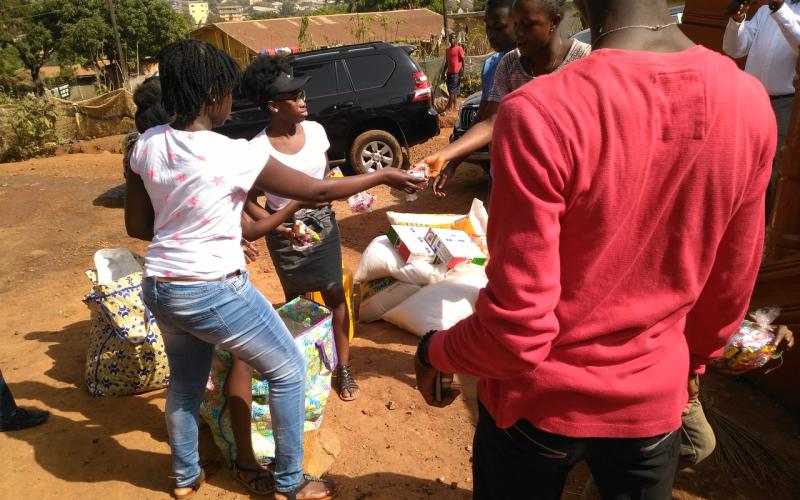
In 2014, Ebola took the world by surprise.
The outbreak of the deadly virus, starting first in Guinea and moving through Sierra Leone, Liberia, Nigeria, Mali and even the US and the UK, has been a reality check for the whole world. As developing countries struggled to contain the virus, developed nations realized they weren't so ready to tackle this hydra-headed monster either.
The numbers alone are shocking: The World Health Organization (WHO) estimates that over 20,000 people battled the Ebola virus in 2014 and 8,000 died.
But while most of us furiously focused all our attention and coverage efforts on Ebola, it turns out we neglected another disease that's claiming even more lives in the region: Malaria.
Unlike Ebola, which still has health officials working around the clock to contain it and find a cure for it, malaria is a preventable and treatable disease that's seldom talked about.
Sadly, the campaign against Ebola is hampering efforts to fight malaria.
Both diseases contain many of the same symptoms including fever, dizziness, head and muscle aches. However malaria is caused by bites from infected mosquitoes while Ebola is contracted only from body fluids of infected victims. For this reason, many doctors decide against drawing blood to test for malaria.
The West African nation of Guinea showcases the problem. In 2013, about 15,000 people in Guinea died due to malaria and 14,000 of these deaths were of children under the age of five years. The latest Ebola outbreak has resulted in the deaths of more than 1,600 people in Guinea.
About 12 million people in Guinea do not have access to health facilities and many infections, as well as deaths due to malaria can easily go unaccounted.
The issue has also affected medical professionals: one of 38 Cuban health workers sent to Guinea to combat the Ebola outbreak, died shortly after contracting malaria. While a kidney dialysis machine could have saved his life, the clinic where it was located had shut down after several people died from Ebola.
IN OUR FIGHT AGAINST EBOLA LET US ALSO KEEP MALARIA IN MIND AND WORK TOGETHER TO END THESE DISEASES.
Image:
Aid worker in protective gear carries child
Taken from www.doctorswithoutborders.org
References
How the Ebola outbreak hurts the fight against Malaria.
Retrieved from Think Progress website: http://thinkprogress.org/health/2014/12/29/3607183/ebola-outbreak-and-malaria/
WHO (2014, December) Malaria Factsheet. Retrieved from World Health Organization Website: http://www.who.int/mediacentre/factsheets/fs094/en/

